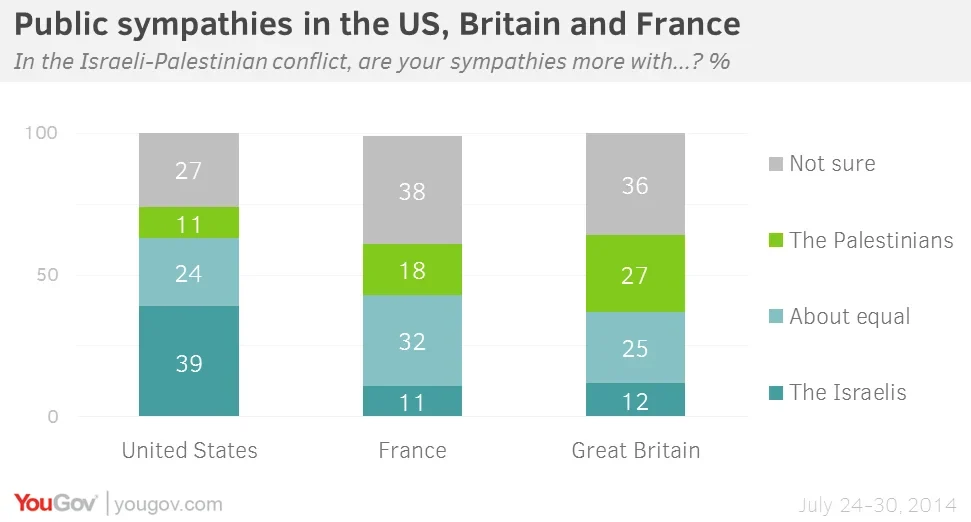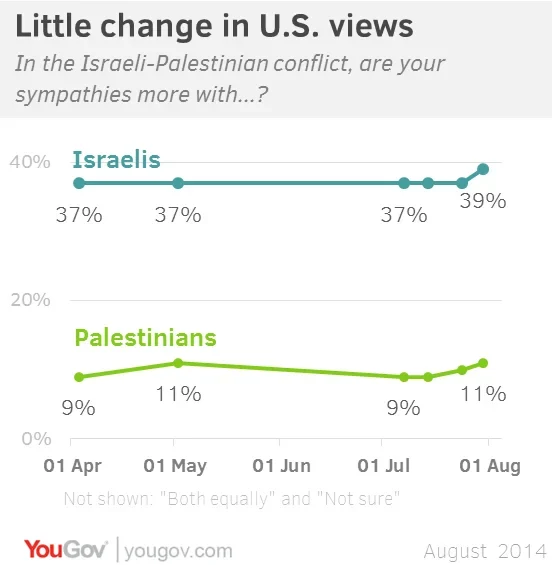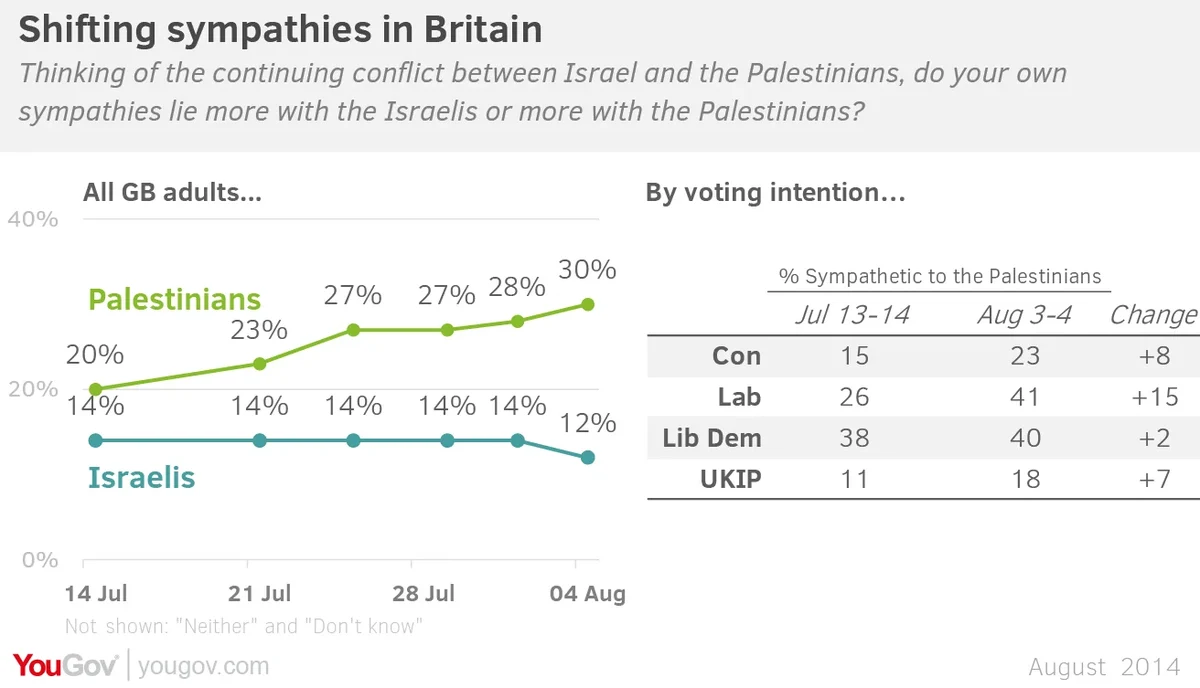British public opinion has moved significantly towards the Palestinians over the past month, while Americans' support for the Israelis has held fast
Israel has withdrawn all of its ground troops from the Gaza Strip ahead of a 72-hour ceasefire. The truce, coupled with Israel’s claims that it has been successful in destroying Hamas militants’ tunnels has fuelled speculation that the month-long conflict could be winding down. Nearly 1,900 people have been killed in Gaza, and the UN estimates that 68% of those killed were civilians. On the Israeli side, 63 soldiers and 4 civilians have been killed.
The civilian casualties has led to intense scrutiny for both Israel and Hamas from the international community, but more recently the UN has been particularly critical of Israel for the bombing of UNRWA shelters.
A new YouGov surveys conducted in Britain, France and the United States reveals how differently people around the world have reacted to the conflict.

Respondents in each country were asked whether their sympathies were more with the Palestinians, the Israelis or both sides equally.
In France and Britain, clear majorities do not sympathise with either side, while half of Americans do pick one or the other. However, this is largely because around four in ten Americans sympathise with Israel – a higher percentage than support both sides combined in each of the European countries surveyed.
By contrast, those that do tend to side with someone in France and Britain mostly sympathise with the Palestinians. The margin is most dramatic in Britain, where the public side with the Palestinians over Israel by more than two to one (27% to 12%).
Sympathies hold firm in the United States
In the United States, YouGov has asked this question several times since April. Responses have followed a strikingly consistent pattern, one that extends to the recent period of violence.

In three out of four surveys conducted during July, 37% sympathised with Israel. Sympathy for the Palestinians stayed between 9% and 11% throughout July.
Republicans continue to be the group who support Israel by the widest margin in the United States: on July 28-30, the pro-Israel bent was 65%-4%.
Democrats and Independents also tend to sympathise more with the Israelis than the Palestinians, even if, like the Europeans, most in these two groups do not pick one side or the other.
A tendency to sympathise with Israelis more than Palestinians exists among all the age, gender, regional, racial and income groups surveyed.
Public opinion on the move in Britain
By contrast, the recent conflict appears to have had a marked impact on public opinion in Great Britain, at least in the short term. As YouGov has previously shown, historical tracking data* from 2003 and up until early July finds no more than 28% and no fewer than 18% sympathising with the Palestinians. Sympathies for Israel have stayed between 13% and 20% over the same period.
However, during the recent conflict the number siding with the Palestinians has risen to a nominal all-time high of 30%, while sympathies for the Israelis have fallen to a low of 12%.

The shift towards sympathy for the Palestinians during the recent crisis can be seen across party lines. Labour voters have moved the most: 41% are now sympathetic toward the Palestinians, up from 26% in mid-July.
Amongst Conservatives, sympathy for the Palestinians has grown by 8 points. In the latest survey, conducted on August 3rd-4th, Conservatives choosing a side were roughly divided between the Israelis and the Palestinians. The Israelis had held a 6%-7% edge in early July.
UK politics were rocked today by the news that a minister at the Foreign Office, Baroness Warsi, had be resigned from the government over its policy on Gaza. In her resignation letter, the Conservative peer described both the government’s policy for Middle East Peace and its response to the recent crisis as “morally indefensible”.
Image: PA
*NB: the wording of the question used historically in Britain is slightly different than the one used in the US or the July 24-31 survey of Britain and France, so the findings cannot be directly compared.









